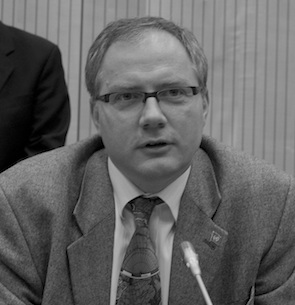
Lorant Czaran
Program Committee / United Nations Population Fund
Lorant Czaran is since December 2018 the Lead for the “Geo-Referenced Infrastructure and Demographic Data for Development” (GRID³) Project Secretariat at the United Nations Population Fund (UNFPA) in New York.
From 2012 to 2018 he was a Programme Officer in the Space Applications Section of the United Nations Office for Outer Space Affairs (UNOOSA), supporting both the Programme on Space Applications and the UN’s Platform for Space-based Information for Disaster Management and Emergency Response (UN-SPIDER), and is well known across the UN community for his long-term commitment towards innovative geospatial solutions in support of the UN system work.
During a long U.N. career starting in 1996, Mr. Czaran has first worked at UNEP/GRID-Arendal in Norway, and then at the U.N. Headquarters (Cartographic Section) on U.N. Geographic Information Working Group (UNGIWG) coordination and Security Council cartographic support, and later at the Department for Peacekeeping Operations where he helped produce the first in-house digital satellite imagery-based topographic maps at large scale for the UN Disengagement Observer Force in the Golan Heights, Syria and supported international boundary demarcation mapping projects (such as the Cameroon-Nigeria or Eritrea-Ethiopia ones).
Mr. Czaran also served as the Map Centre Manager for ReliefWeb at the U.N. Office for the Coordination of Humanitarian Affairs (OCHA) from 2006 to 2008, before joining UNOOSA in October 2008, first as the Head of the UN-SPIDER Bonn Office. In that position he established and built up the new office in Bonn, supervising up to 16 staff and interns, and with his team he was also instrumental in facilitating critical support through space technologies during the response to the major Haiti earthquake in 2010 and in other major emergencies.
Mr Czaran is an acting representative from the United Nations to specialized international bodies such as the Committee on Earth Observation Satellites (CEOS), ISO/TC211 and the Open Geospatial Consortium (OGC).
Mr. Czaran holds the equivalent of a Master degree in Geography and Russian Language from the Babes-Bolyai University of Cluj, Romania, where he also started his PhD degree in 1994, and was a research fellow at Collegium Budapest Institute for Advanced Studies during 1994-1995.